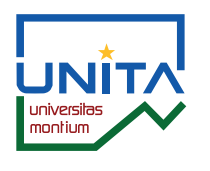Our history
From 2021, we have included the R&I dimension in our scopes of action, to promote new research collaborations to serve the territories.
Here below, we describe the R&I historical background and the activities, conducted through integrated governance and management bodies, headed by the research vice-rectors from our universities.
The Pilot phase of UNITA: 2020-2023
Under the WP4 of the UNITA Alliance Erasmus + Project, funded under the European Universities Initiative, the six founding universities achieved many actions dedicated to R&I:
- A cartography of research projects in the three main thematic areas (Cultural heritage, Circular Economy, Renewable energies) and the corresponding Research & Innovation Hubs
- A microcredentials framework and pilot courses with digital badges, in the three main thematic areas, designed for Ms and PhD students.
- The active use of multilingualism through the inter-comprehension methodology
- A set of Summer schools in the three main thematic areas
- Creation of a doctoral schools network, with the funding of more than 40 UNITA thesis co-tutelles.
Re-UNITA – Research for UNITA: 2021-2024
On September 2021, the six founding universities of the UNITA Alliance began a new project, called “Re-UNITA: Research for UNITA", with a grant of 2 million € from the European Commission, in the framework of the H2020 programme, within the call « Science With and For Society » (SWAFS).
Highlighting the importance of UNITA and its potential in the field of research and innovation, we aim, during the 3 years of the project, to create an enabling environment for the emergence of a shared research and innovation agenda within the UNITA alliance.
Re-UNITA is coordinated by the Université de Pau et des Pays de l’Adour (UPPA) involving the whole UNITA consortium (UBI, UNITO, UNIZAR, USMB, UVT).
More information on the Re-UNITA project here.
The Consolidation phase: 2023-2027
UNITA, as a genuine European university, will take advantage of the achievements of the last 3 years to take institutionalized cooperation to the next level, contributing to the educational, scientific and cultural progress of the regions, promoting sustainable development, strengthening local innovation ecosystems, supporting the transition to a knowledge-based economy, while promoting and accelerating European integration.
As rural, mountainous and cross-border territories, UNITA regions face specific and similar challenges, such as depopulation, brain drain, more expensive public services and center-periphery dynamics. Added to these challenges are global challenges such as climate change, the digital divide and an ageing population.
To foster development in the rural, mountain and cross-border territories hosting the partner universities through challenge-based education, research and innovation-related activities, we are:
- Creating a network of UNITA interfaces with the local innovation ecosystems to facilitate strategic knowledge sharing with them, in line with the Smart Specialisation Strategies and the European Innovation Agenda.
- Promoting cooperative research among the alliance partners and inter-territorial research communities, working on existing and emerging alliance thematic hubs, originating in complementary competences, alliance strategies, SDGs and territorial smart specialisation strategies.
- Facilitating and improving the partners’ sharing practices of the research infrastructure and related services according to identified needs.
- Developping interconnected master and doctoral programmes targeting alliance focus areas through research-based academic, practice-oriented and industrial-based training.

